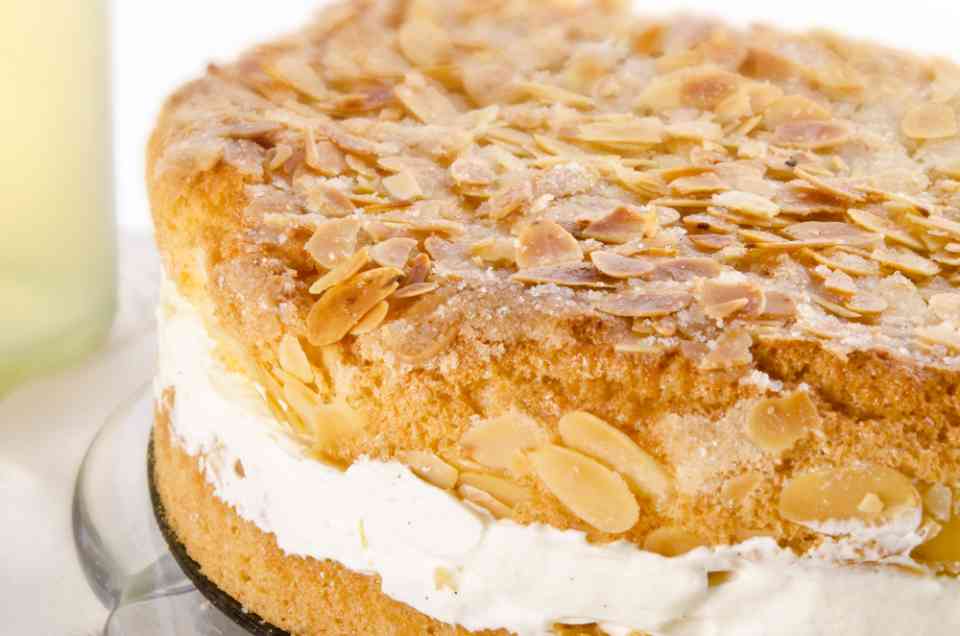Where To Find Authentic German Desserts In Berlin

The abundance of delectable desserts and sweet delicacies in Germany is well-known. Do you need help with the desserts and sweet delicacies to try on your upcoming vacation to Germany? You’re in the proper location! You will learn about the best German sweets and desserts in this guide and where to find them.
- Café Amour Fou
Black Forest cakes originated in the city’s Café Amour Fou in Kreuzberg. Amour Fou, a Dessert Manufacturer, sells delectably flavorful, light, and alcoholic Schwarzwälder Kirschtorte. Due to its association with cocktail sausages, Sara Lee, and other somewhat upscale events in the 1980s, the black forest gâteau has been plagued for a while. Black Forest cake, also known as Schwarzwälder Kirschtorte, which translates to “Black Forest cherry cake,” has returned in popularity after falling out of favor in the 1990s. Several well-known chefs have created their takes on the traditional Baden-Württemberg dessert. A traditional Black Forest gâteau is a chocolate cake with Kirschwasser, cream, and black cherries on top. The dish is named not after the Black Forest but the region’s signature liquor, Kirschwasser. - Konditorei & Café Buchwald
The Hansaviertel in Berlin offers a version of Stollen that is as authentic as you’ll likely discover. Traditionskonditorei Buchwald by Tiergarten combines more than 160 years of baking history in their traditional Stollen recipe. In Germany, Stollen is a traditional Christmas food. Stollen is a dough mix with caramelized orange peel, dried fruit, and often a generous amount of marzipan. It is similar to the traditional Anglo-Italian Christmas fruit cake and panettone cake. There are only 150 “official” Stollen bakers in the nation, all from Dresden (dating back to 1474 when it was named striezel). Official Stollen bakers identify their goods with Augustus II’s “The Strong” seal. - Rogacki
The eye is sometimes deceiving. The filthy facade of Rogacki in Charlottenburg betrays the goodies on offer inside, despite what Berliners might assume. Also, they have a fantastic selection of savory foods. Another traditional German cake, Bienenstich, is created from sweet yeast dough. It has a vanilla custard filling and is topped with caramelized almonds. “Beenstich,” or “bee sting,” was first attributed to Munich. Yet it could be more obvious how the cake came to have that name. A baker was allegedly stung in Bienenstich in the 15th century after a bee was drawn to the enticing aroma of honey in his kitchen. - Llebkuchen Schmidt
There are four sites in the city where Llebkuchen Schmidt serves authentic lebkuchen. Lebkuchen is a seasonal treat only available towards the close of the year. Lebkuchen are traditional Christmas biscuits, not truly cakes. These tiny pastries, also known as pfefferkuchen, come from Franconia in southern Germany and are claimed to have been created by monks in the 13th century. Similar to gingerbread, lebkuchen comes in both sweet and savory varieties. Traditional lebkuchen are often soft pastries with almonds, chocolate, or frosting. Lebkuchen hearts, which are larger iced cookies sold at German Christmas markets and made popular by the Hansel and Gretel legend, are harder. Lebkuchen is a popular holiday gift that can be very aesthetically pleasing. Tins are typically kept as souvenirs. - Bäckerei Siebert
Prenzlauer Berg’s Bäckerei Siebert is full of history and delicious treats. This neighborhood bakery was founded in 1906 on Schönfließener Straße in Berlin’s poshest neighborhood. The finest Nussecken in the city is served there. Nussecken, which translates to “nut corners,” is a favorite treat from German bakeries. The soft, cakey middle has a lot of nut flakes (generally almonds, though other bakeries use other nuts), and one end is normally covered in chocolate.
References:
https://www.internationaldessertsblog.com/10-must-try-german-desserts-sweet-treats/
https://theculturetrip.com/europe/germany/berlin/articles/classic-german-desserts-and-where-to-find-them/
Have you read?
The most crucial time in a day of a leader by Payal Nanjiani.
3 Myths, 2 Companies, and 1 Difference That Can Delight or Dismay Your Customers by Atul Minocha.
Trust: The Magic That Transforms Vision into Reality by Shantha Mohan Ph.D.
The Human Factor: The Top 3 Concerns Keeping CEOs Up at Night by Stephanie Neal.
Who is Tatiana Bakalchuk – the Russian e-commerce mogul?
Bring the best of the CEOWORLD magazine's global journalism to audiences in the United States and around the world. - Add CEOWORLD magazine to your Google News feed.
Follow CEOWORLD magazine headlines on: Google News, LinkedIn, Twitter, and Facebook.
Copyright 2025 The CEOWORLD magazine. All rights reserved. This material (and any extract from it) must not be copied, redistributed or placed on any website, without CEOWORLD magazine' prior written consent. For media queries, please contact: info@ceoworld.biz











